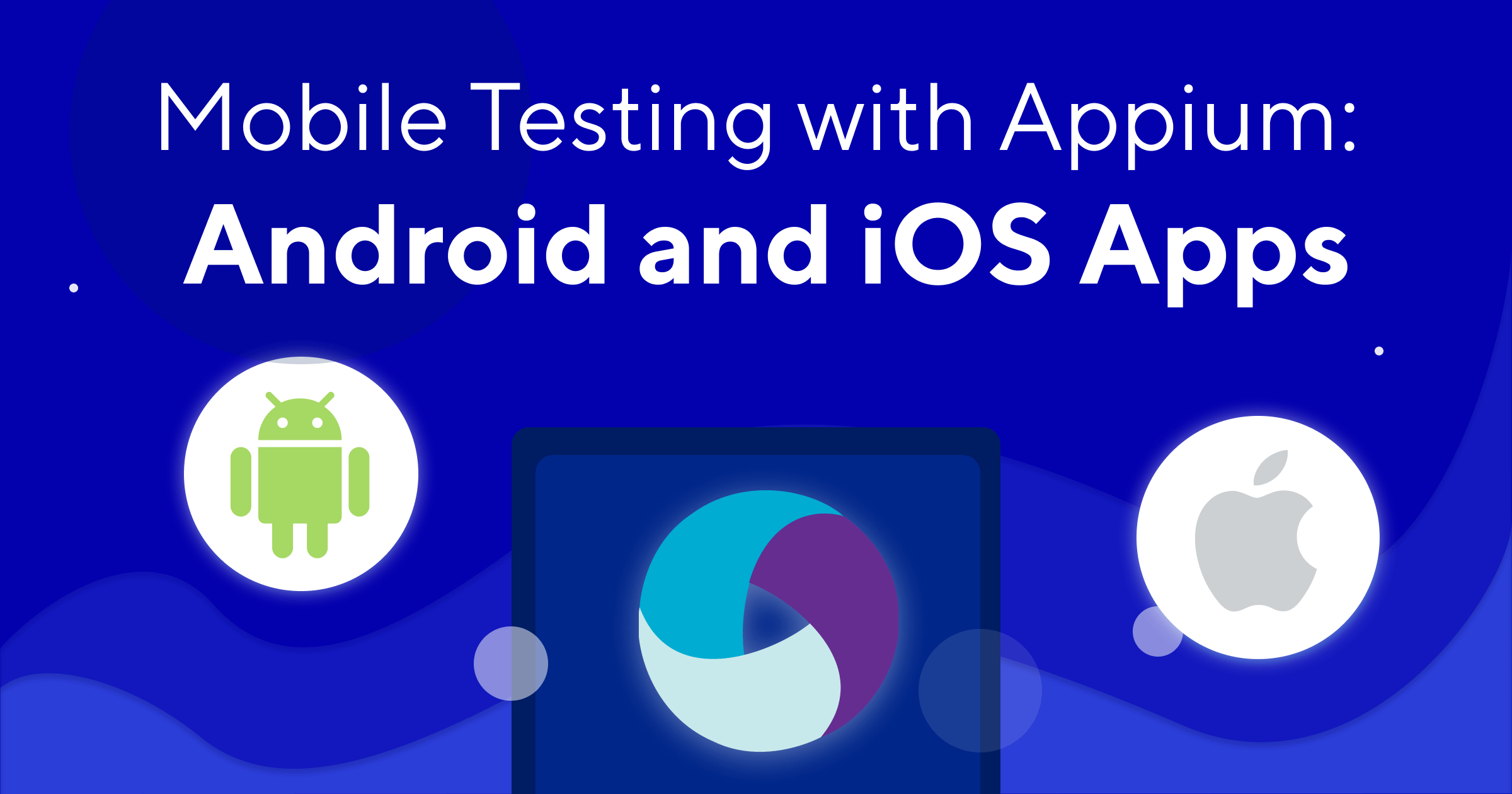Why Appium Is the Best App Testing Tool for iOS and Android
Demand for mobile application testing solutions is expected to grow at a CAGR of 19.0% between 2022 and 2029. It had a CAGR of 16.0% between 2014 and 21. The mobile application testing solutions market is expected to grow from US$ 6.0 billion in 2022 to US$ 20.3 billion in 2029. Be it iOS app testing or android app testing, Appium is topping the list.
Why is Appium globally popular?
A deeper look at Appium’s best features for automated mobile app testing will help you see why it is such a great solution and why people around the globe are adopting Appium mobile testing over anything else.
- Appium is cross-platform compatible. Thus, it can be used to test applications on iOS and Android devices. This makes it a practical alternative for app testing on numerous platforms.
- Appium facilitates the automated testing of native and hybrid applications. This implies that you may use Appium to test apps developed using native Android or iOS SDKs or a cross-platform framework like Cordova or Ionic.
- Appium facilitates the automated testing of mobile web applications. Appium may be used to test web applications accessible through a mobile browser, such as those written using HTML5 or AngularJS.
- Appium is free to use and open source. This makes it an exciting alternative for developers and testers seeking a cost-effective method to automate mobile application testing.
- A robust development and user community support Appium. This indicates that you may receive assistance and support from the Appium community if you have issues while utilizing Appium.
- Appium is a potent tool that can automate the testing of many mobile applications, making it popular for teams who need to test their mobile applications fast and efficiently.
- Appium has numerous advantages over existing mobile app testing platforms, including performing tests on physical devices and interacting with primary Continuous Integration and Continuous Delivery (CI/CD) technologies like Jenkins and Travis CI.
What are the limitations of Appium?
No matter how popular Appium is, it’s not free from flaws. Here are some limitations of Appium-
- The usage of simulators expedites the testing of iOS applications. This feature makes it easy for testers to comprehend and manipulate the internal behavior of ios devices, but it prohibits using various scripts in multiple simulators.
- It is not allowed to test the app on Android versions before 4.2.
- limited support for hybrid app testing
- The support for gestures, such as double-clicking to open a Java library, has not yet been implemented.
- There is no comprehensive documentation in the form of tutorials.
- Picture recognition is relatively weak; we must use image processing techniques to improve it.
- Microsoft Windows does not support Appium inspector.
How to improve Appium testing with HeadSpin?
Apium limitations can be overcome with HeadSpin. Appium supports the functional components of the test on the HeadSpin Platform, while HeadSpin data and insights enable the non-functional aspects of the test. The most recent version of the platform allows for debugging and developing Appium scripts right in the UI without needing an app or desktop client. In addition to basic Appium features and W3C WebDriver requirements, the Appium server running on each HeadSpin host enables several bespoke features. The cloud-based HeadSpin Appium load balancer includes extra device selection and redundancy control functions.
By combining Headspin’s services with automation tools such as Appium, the HeadSpin team aims to make the mobile app development, testing, and device sharing processes more efficient and streamlined. They can assist:
- Streamline the complete CI/CD procedure
- Quickly generate vital Appium programs
- Lessen the complication of test frameworks
- Support simultaneous testing on various mobile devices
As part of Appium’s popular feature set, Appium Inspector is used to identifying a mobile app’s UI components while constructing Appium automation scripts. Appium Inspector typically works with a local device, a simulator (for iOS), or an emulator (for Android) to investigate the app view hierarchy.
However, HeadSpin has developed a feature that bypasses the additional labor of creating simulators/emulators, downloading apps for testing, and the numerous other procedures necessary in establishing an Appium development environment. This feature is the HeadSpin Appium Inspector Integration for the HeadSpin Device Remote Control User Interface.
Here is how HeadSpin supercharges Appium
- Test on an open-source version of Appium and not a commercial one (no vendor lock-in)
- Reduce your test cycle times by at least 30% with the HeadSpin Platform.
- Capture performance data for more insightful actions
- Execute parallel tests to save time
- Reliable testing on iOS and Android devices
- Ensure compatibility with biometric testing and two-way audio
- Evaluate audio and visual functionality
- Make no modifications to the test script
Conclusion
The key to a successful mobile enterprise is selecting the proper mobile app testing automation tool. There are several benefits to integrating Appium into your mobile app development workflow. Though it has some limitations to make Appium test automation flawless, club it with HeadSpin.

















